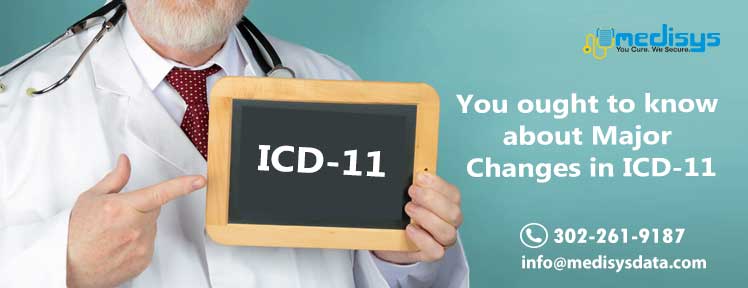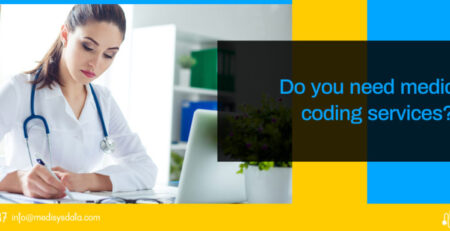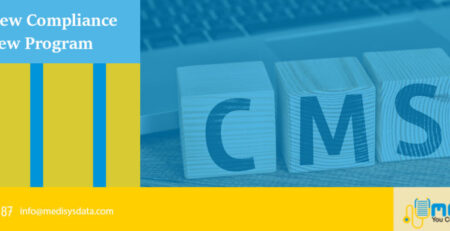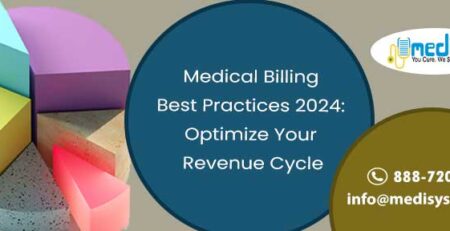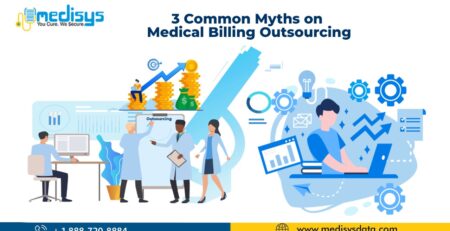The World Health Organization (WHO) periodically updates ICD codes to improve clinical use and acknowledge innovation in healthcare. WHO has said countries can report heath data using ICD-11 from Jan. 1, 2022. In the past it is observed that transitioning to new ICD codes creates some confusion and difficulties in the providers mind hence you ought to know about major changes in ICD-11 to avoid the confusion that will lead to higher rate of claims denial. Let’s understand ICD-11.
What is ICD 11?
The ICD refers to the International Classification of Diseases. This change is most significant change to disease classification since ICD-9 was retired in 2015. Currently, ICD-10 represents about 14,000 distinct diagnoses.
The use of ICD-10 has become increasingly problematic because of its outdated content and with changing time ICD-10 will only become less fit for precise and meaningful classification.
ICD-11 has 55,000+ unique codes to represent a more comprehensive list of diagnoses. This update is a game-changer for the healthcare industry because it recognizes several common diagnoses that were previously overlooked in ICD-10. However, ICD 11 is more complex system to learn and implement because you will find the addition of over 40,000 new codes. Moreover, there are other major changes and advantages they bring to ICD-11, you can read them in the following brief.
Major changes in ICD-11
Ease of use
- When it compared to previous versions ICD-11 coding is more contemporary and more easily integrated with electronic health records.
- ICD-11 will be completely electronic with a goal of user-friendliness
Updated structure and content
- Besides diseases, ICD-11 includes external causes, disorders, signs and symptoms, anatomy, histopathology, and much more.
- Each category will feature four characters rather than three, and there are two levels of subcategories. The range of potential codes is 1A00.00 to ZZ9Z.ZZ.
- ICD-11 contains 28 chapters, compared to 22 in ICD-10. These additional chapters contains chapters for immune system diseases, sleep-wake disorders, traditional medicine, developmental anomalies, sexual health, and functioning assessment, as well as a better representation of cancers, devices, medications, substances, severity, and causes of injuries.
- ICD-11 allows for multiple applications to meet health system priorities. Examples include clinical recording, research, mortality, morbidity, primary care reporting, patient safety, antimicrobial resistance, resource allocation, epidemiology, population health, health system performance, and reimbursement.
As you may observe there is special attention given to mental health providers and there are two new chapters related to mental health in the ICD-11. Let’s look at them in detail.
Major Changes for Mental Health Providers
Change-1: New chapters on sleep-wake disorders and sexual health
The first chapter contains conditions related to sexual health, includes:
- Sexual dysfunctions
- Sexual pain disorders
- Sexually transmitted infections
- Contraceptive management
- Changes to the male and female sexual anatomy
The second chapter belongs to new mental health,
Sleep-wake Disorders, includes:
- Insomnia disorders
- Hypersomnolence disorders
- Sleep-related breathing disorders
- Circadian rhythm sleep-wake disorders
- Sleep-related movement disorders
- Parasomnia disorders
Change 2- New conditions added to mental, behavioral, and neurodevelopmental disorders includes-
- Compulsive sexual behavior disorder
- Body integrity dysphoria
- Gaming disorder
- Avoidant/restrictive food intake disorder
- Binge eating disorder
- Premenstrual dysphoric disorder
- Bipolar type II disorder
- Body dysmorphic disorder
- Intermittent explosive disorder
- Olfactory reference disorder
Change 3-Alignment of ICD -11 with SDM
The Diagnostic and Statistical Manual of Mental Disorders (DSM-5) is ONLY for mental health on the other hand ICD represents all types of medical diagnoses.
Some codes in DSM-5 are not valid ICD codes hence ICD-11 trying to address this problem. This change is largely due to the joint efforts of the WHO and the American Psychiatric Association (APA) to harmonize the structures of the DSM-5 and ICD-11.
Now, you have better understanding about ICD-11 and this coding system will definitely help you because ICD-11 comes with many tools including a coding tool, a reference guide, a browser tool, and transition tables in its implementation package.
Tough ICD 11 is more complex system to learn and implement but we can help you to win this battle. We are HIPAA compliant medical billing and coding expert and our experts help you to get your claims settled at the earliest with no errors.
Are You Ready to Get Billing?
Want to hire an experts in Medical Billing and Coding for your Practice? You are at the right place, what you need now is a partner who can finish out the rest of the work and make the technology and implementation just as simple. That’s what the best medical billing company like Medisys Data Solutions Inc. can do. If you’re ready to get started, schedule a meeting with our Medical Billing Manager from filling out enquiry form from our website!







